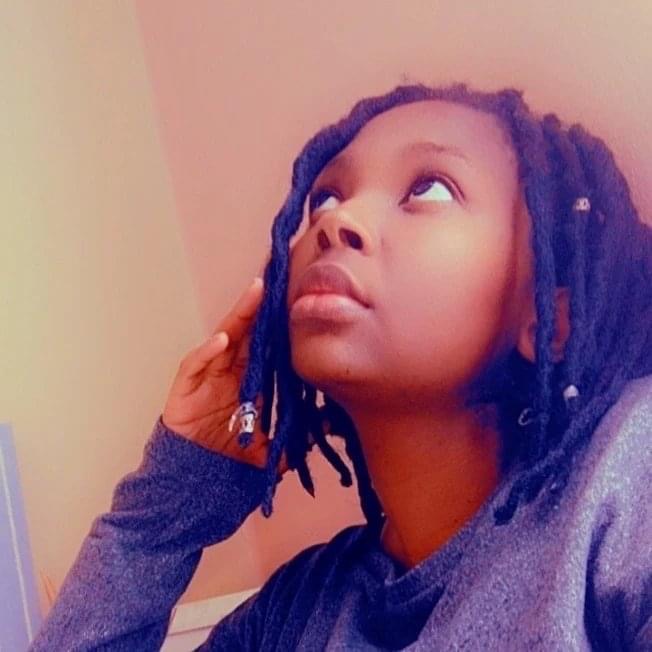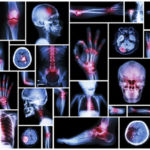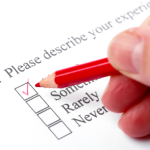For our January newsletter, journalist Karina Sturm spoke with rare disease advocate Nthabeleng Ramoeli. Ramoeli was born in Lesotho, a country encircled by South Africa, and lives with Ehlers-Danlos syndromes and many other comorbid conditions. The young woman relentlessly fights for improved access to health care for rare disease patients in her home country and shares with Sturm the long and stony road to her EDS diagnosis, how care in Lesotho is for people with EDS, and why she established an NGO to help all rare disease patients in her country.
- Nthabeleng Ramoeli
Karina Sturm:
Welcome, Nthabeleng! It’s so great to finally meet you. Can you tell me a little bit about yourself? Where do you live, how old are you, and what do you do?
Nthabeleng Ramoeli:
That’s a tricky question! I live everywhere. I was born in Lesotho, a small South African country with a population of only two million. It is actually inside South Africa. They call it the “Europe of Africa” because it’s frigid in winter and snows. Yes, in Africa! Can you imagine? Regarding my age, I just turned thirty-one this year!
I started an NGO in 2017 that works with people in Lesotho that have all types of rare conditions. I realized that if I were to consider only Ehlers-Danlos syndrome, I’d help very few people due to the low population. However, all people with rare conditions, regardless of the kind, face similar issues; we all suffer from fatigue, doctors not taking us seriously, etc. So to summarize: I’m a rare disease advocate who lives with EDS, but on a personal side, I have a degree in engineering. I was thinking of using it to build a hospital specifically for researching rare conditions. In our country, we don’t have a single one, so there is no place people like me can go, which leads to so much suffering. I’m hoping to start this in the next three years. Additionally, I’m an energy healer and therapist.
Sturm:
That would be awesome! Tell me a bit about your own EDS journey. When did you start having symptoms, and how long did it take until you finally got diagnosed?
Ramoeli:
I started showing symptoms at a very young age, but people would dismiss it as either being lazy and/or clumsy. When I was 12, my symptoms intensified. Specifically, in winter, I felt worse. I would tell my grandmother, “I feel the cold in my bones.” People were like, “You are exaggerating.” But I told them I could feel my joints moving out of place. I was dismissed like I was just overreacting… until I had my first dislocation. It was in my jaws, and it was the most excruciating pain I’ve ever felt in my life. Around that time, I was also starting to have a lot of eczema attacks, and I felt like certain foods hurt me, so I just didn’t eat. It started snowballing from there. Next came the shoulders, then the kneecaps, the hands, the hips, and the fingers. When my mom saw a dislocation for the first time, she was freaking out, called a doctor, and told them my joint was out and that she did not know what to do. The doctor said I couldn’t just dislocate a joint. Only people who fall from high buildings or are in car accidents dislocate in this manner, but I woke up like this. I also thought it was normal for everybody to just feel extremely exhausted all the time. Apparently, it’s not normal. We shouldn’t always be tired. Then my digestion got worse, and I felt dizzy and had difficulty breathing. I went to see a Chiropractor, and he said, “Your body and your back are worse than an 80-year-old body.” That’s when I realized something was wrong. It was not all in my head. But I continued to push through and still went to school.
Then, in December 2010, I ended up in a hospital. But after the results returned negative, they told me I must be a hypochondriac. Not long after that intake, I had an extreme seizure and ended up at a different hospital. They transferred me to South Africa because they couldn’t handle my case. I was in a coma for a few weeks. While unconscious, I had a near-death experience where I was given the ultimatum: “Do you want to come back to earth, or do you want to go?” I responded that I was ready to go, but the voice said, “No. You still have a lot to do and people to help out.” Back then, I didn’t know how I would help others since I could barely support myself. Then I woke up, hooked to eight machines that replaced all my body’s functions. I had lost my memory. It took me a year to gain back most of it.
In the same year, I started doing my own research. I stumbled over the condition Ehlers-Danlos syndrome, and it immediately was clear I had it! So, I got into some online groups and started to talk to a Canadian doctor who said, “You may have an extreme case of EDS. I’m going to give you something you can take to a local doctor so that they can determine whether you have it or not.” I used his letter to see a neurologist. Unfortunately, I ended up with the same neurologist who had previously called me a hypochondriac. At this point, I was willing to swallow my pride and asked her to simply do the Beighton score based on the instructions in the letter. I scored nine out of nine. The doctor apologized for misdiagnosing me for all those years, and I accepted her apology. But even though I now had a formal diagnosis of EDS, there was still nobody who could help me with my symptoms. The doctors didn’t know what to do. I had to tell them based on the research I was now doing every single day.
Sturm:
What was the most challenging part of your life after you finally got the diagnosis?
Ramoeli:
The biggest challenge was to figure out how to live with the condition, knowing but not having someone understand what it is. I live with the constant fear that if I have an accident and end up in the hospital without being able to express myself, they will make me worse because they won’t know how to properly take care of my EDS. I need to see my doctors, but when I collapse in a random place, people take me to just any doctor. Another challenge is that people think I am isolating myself because I want to. I don’t, but I can’t just leave the house without checking the weather forecast because certain temperatures or air pressure make me feel sick. I also take multiple medicines, like 40 pills a day. Sometimes I don’t even know whether I took them because I have such severe brain fog.
Sturm:
At what point in your journey did you realize you had to advocate for yourself?
Ramoeli:
I just realized that if I don’t start talking, I will die. So, it started with advocating for me; then, it developed further from there. I’m pretty sure that not everybody has the privilege, the resources, or even the ability to articulate that type of pain that comes along with EDS. Sometimes, one is so consumed in pain that advocating would not be the first thing on your mind. However, I had multiple events where doctors would not know how to treat me properly, which could have led to my death. I had to tell them to stop. Where I live, most of them seem more concerned with getting paid than avoiding mistakes or the patient dying. I’m just another number to them. I’m not a daughter. I’m not a friend. They’ll say condolences, but that’s about it.
Sturm:
Yeah, I know that feeling. But at some point, you stopped only advocating for yourself, and you decided to create an organization to support all people with rare diseases, right? Why did you choose to take that step?
Ramoeli:
I have a particular privilege in the sense that I still have access to healthcare. What about those who don’t have that privilege? And then I met this little girl… One day, a cousin of mine came to me and said, “My friend has a kid that’s very sick, and I think you’re the only person who can understand her.” I had a meeting with the mother, who told me her child had a kidney condition. They accused the mother of child abuse because she was malnourished. And I immediately thought, “Who is ever going to listen to us if we are only the two of us?” If we were an organization, people would pay more attention. This family needed immediate help. The girl needed a new kidney, or she would die.
Sturm:
Oh my gosh, that’s so stressful!
Ramoeli:
Exactly. Within a week, we registered a Non-Governmental Organization (NGO). Then within the next few months, we were trying to establish the launch of the actual NGO. In between our registering and the launch itself, we had more than 40 patients already. We just started growing from there on.
Sturm:
Well, what happened to the little girl that really changed the whole future for all rare disease patients in your country?
Ramoeli:
The little girl is now doing great! She ended up getting a new kidney from her mom through a large surgical procedure. It wasn’t easy because we didn’t have the funds to cover it all, but we used whatever we had. For the first time, she went to school like a regular child. And I don’t have to live with the nightmares wondering if she will make it tomorrow. She has a chance now and a better life. So, that’s everything started – with one little girl.
Sturm:
I love this story – especially because it has a happy ending. That’s amazing. Tell me a bit about what your organization is doing.
Ramoeli:
We do lots of different activities, depending on how big our team is. For instance, we are fundraising a lot. One of our biggest projects so far is training teachers in schools about rare conditions. We are collaborating with the government, so we can go to various school districts to educate teachers on how to spot rare diseases because they often might get a suspicion before the parents even. We realized that training and awareness within the school system might spread faster than in any other area. Another project we supported but which ended because we lacked the funding was to educate live-in nurses for patients with rare conditions.
Sturm:
Looking back to the last years, what is your most significant achievement so far?
Ramoeli:
My biggest achievement is learning that advocating is empowering. It’s teaching me how powerful I am. That’s my biggest achievement.
Sturm:
That’s very true. It is empowering to know that we can manage our health even without doctors – even though I cannot prescribe myself medication (yet)! (Laughs). Can you tell our readers how you cope with all the challenges you experienced and are still experiencing these days?
Ramoeli:
I do a lot of self-care on a daily basis, for example, meditation. So, I would say having a conscious mind; a healthy mind has helped me navigate many challenges. It has changed my outlook on life. When your mind is okay, even if your body that day is not, you are much better at dealing with the pain. Number two would be setting clear boundaries, especially with doctors who think they can tell me what to do with my body while I disagree. Also, I switch off my phone when I need a break. Some things can wait until tomorrow.
Sturm:
Oh, well, I should take this tip and follow it myself. I never ever switch off any of my devices. Anything else you want to share?
Ramoeli:
Another helpful tool for me is eating well. The food I can eat is very limited. So in my diet, I don’t substitute; I only eliminate. Additionally, I like to listen to music. I can’t dance anymore, and I can’t run anymore – both of which I loved and used to cope with when I was healthier – but music has saved me. I think that anybody with a chronic illness can relate. When you’re in a hospital ward for six months straight and there’s not anything happening or any change, your playlist keeps you going and really makes a difference.
Sturm:
Those are great. Thanks so much for taking the time to share all your wisdom with me! I hope we can reconnect again soon. I am very grateful for all your work!
Ramoeli:
Thank you, also. And I appreciate everything you do, too! Bye.
You can find Rare Disease Lesotho HERE.
Susan Jackson & Karina Sturm
January 2023




What an inspiration she is!
Mine is no where near as bad but I had a major bleed at age 18, GI, have had 9 now, and am 76 and about to have a surgery for POP. Another 18 months and I will have had symptoms of EDS for 60 years!
I have had to put information together, research the physicians here, luckily we are a major medical teaching center, and then kind of “manage” the Docs.
For example, asking the head of Cardiac what problems he has run into before with EDS patients, he ordered all the tests.
Then I mention what he said to the Urogynecologist.
I have been at this pretty much full time now for 14 months. There were times when my husband felt I would end up in a nursing home, but I am mentally fine now and eager for this surgery. Thanks!